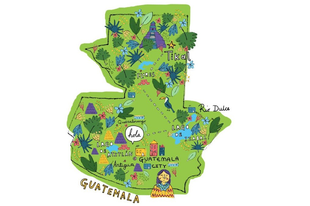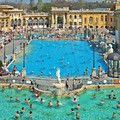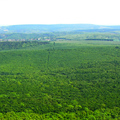For English and Spanish please scroll down
Mai interjúnkban az édesapja révén félig magyar származású Lenkével beszélgetünk Guatemaláról, Moszkváról, és arról, hogy miért tetszik neki annyira a Budapesti Állatkert Elefántháza.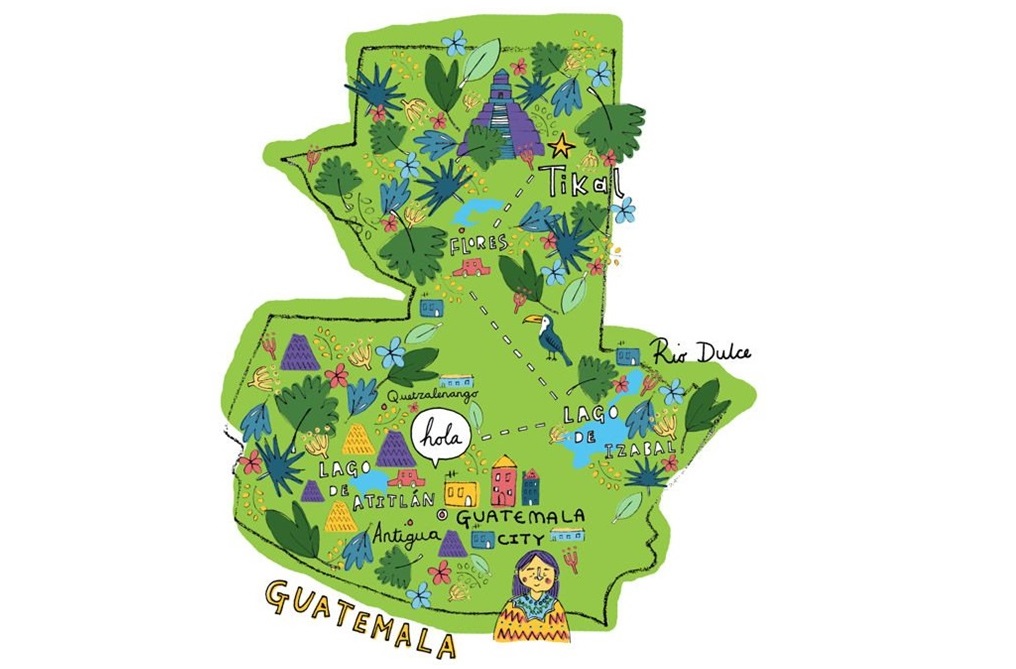 Forrás/Source: https://www.behance.net
Forrás/Source: https://www.behance.net
Nagyon különleges a neved.
Igen, ez a név otthon, Guatemalában nagyon szokatlan. Nagymamámat hívták így, utána lettem én is Lenke.
Vannak testvéreid?
Igen, a testvéreimnek is magyar nevük van a családunk egy-egy tagja után. Azt hiszem Édesapám így akart egy kicsit emlékezni a magyar gyökereire.
Mesélnél egy kicsit a családodról?
Édesapám és a családja a II. világháború végén ment Guatemalába, de rövid időn belül tovább költöztek Amerikába. Apám volt az egyetlen, aki három hónappal később visszament, mert beleszeretett az országba és a barátságos, őszinte emberekbe. Megnősült, 4 gyermeke született, de hamarosan el is vált a feleségétől. A munkája során összeismerkedett anyai nagyapámmal, aki vacsorára hívta őt a házába. Ekkor ismerte meg Édesanyámat, akivel hamarosan összeházasodtak és 7 gyermekük született.
Mi, magyarok nem tudunk túl sokat Guatemaláról. Milyen a mindennapi élet nálatok?
Nos, nem a magyarok az egyetlenek, akik nem ismerik Guatemalát. Nem hibáztatom őket ezért, mert egy nagyon kicsi és szegény közép-amerikai ország, aminek sem politikai, sem gazdasági befolyása nincs a világra. Amit viszont az emberek szintén nem tudnak, hogy Guatemala az ősi maja kultúra szíve, és itt található egykori civilizációjuk legnagyobb városa, Tikal.
Az ország egyébként tele van ellentétekkel; egyesek spanyolul beszélnek, mások a 21 maja nyelvjárás valamelyikén – nem ritkán egy helyiségen belül is. Az őslakosok többnyire népviseletben járnak, amely régiónként más és más. Az utcán láthatunk ősi maja rituálékat, katolikus körmeneteket, hallhatjuk az óceán hangját, vagy bulizhatunk egy discoban a fővárosban. Ezenkívül az ország minden részének megvan a maga sajátos illata; cukornád és gyümölcs illat a partvidéken, kávé Antigua Guatemalában (a régi városban), vizes föld illat az erdőkben, tömjén a kisebb falvakban.
Az egyetlen dolog, amit az emberek általában mégis tudnak Guatemaláról, az az, hogy mennyire veszélyes ország. A legnagyobb gondot a kábítószer kereskedelem, a szervezett bűnözés és a helyi bandák jelentik. A turistáknak például nem is szabad egy helyi kísérő nélkül útnak indulniuk.
Miért jöttél Európába?
A középiskola elvégzése után Moszkvába mentem tanulni. A nyári szünetekben lehetőségem volt utazni is egy kicsit, főleg Oroszországban és Magyarországon. Meglátogattam magyar rokonaimat, beleszerettem a kultúrába, a városokba, az ételekbe és az emberekbe. Egy kicsit szégyellem, hogy nem tudok magyarul, de Édesapám mindig spanyolul szólt hozzám. Most az egyik legnagyobb célom, hogy megtanuljam ezt a szép nyelvet.
Milyen volt az élet Moszkvában? Hogy barátkoztál meg az időjárással?
Moszkva nagyon érdekes hely, szerintem életében egyszer mindenkinek látnia kell! Néha olyan, mintha a cári Oroszországban lennénk, mindenhol pompa és csillogás. Máskor meg mintha a Szovjetunió nem is bomlott volna fel, és jó pár évtizedet visszaléptünk volna az időben. Oroszország mindig a szívemben marad, mert rengeteg szép emlék fűz hozzá. 5 évet töltöttem el ott, eleget ahhoz, hogy megszeressem a havat és a hideget – sok más egyéb mellett.
Hogy tetszik Európa?
Az európai életszínvonal összehasonlíthatatlanul jobb és magasabb annál, mint amilyen otthon, Guatemalában, sokan mégsem értékelik ezt. Talán nem tudják milyen szerencsések. Tetszik, hogy az emberek őszintén megmondják egymásnak a véleményüket, és nem félnek megbántani mások érzéseit. Imádom az ételeket, a jó borokat, a kisvárosokat, és az érzést, hogy kimehetek az utcára akár este is, anélkül, hogy veszélyben érezném magam. Emellett sok kulturális esemény van, jó a tömegközlekedés stb…
Mit csinálsz most Magyarországon?
Próbálok megtanulni magyarul – egyébként egy nagyon nehéz nyelv, mondták már? Sorra látogatom a rokonaimat, jó őket viszontlátni, és jó megismerkedni olyanokkal, akikkel eddig még nem találkoztam.
Az egyik rokonodra nagyon büszke vagy. Ki ő?
A dédnagyapám, Neuschloss Kornél. Építészként ő tervezte a Budapesti Állatkert Elefántházát és főkapuját. Szeretek általa tervezett épületeket felkeresni, és valahányszor bennük sétálok, nagyon büszke vagyok rá.
Mik a terveid a jövőben?
Ez egy vicces kérdés. A latin-amerikaiak úgy tartják, ha beszélsz a terveidről, nem válnak valóra. Bár én is latin-amerikai vagyok, annyit azért elárulhatok, hogy mindig is kíváncsi lány voltam, és még nagyon sok hely van a világon, amire kíváncsi vagyok.
Köszönöm Lenke!
Az interjú teljes szövege szerzői jogi védelem alatt áll. Engedély nélküli publikálása, felhasználása tilos és jogsértő.
Ha tetszett a cikk, kövess minket a Facebookon is!
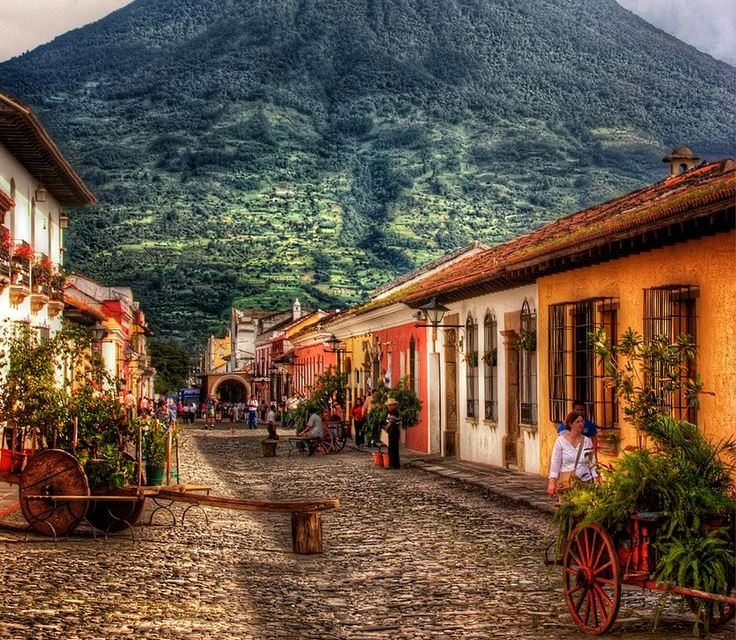
Forrás/Source: https://hu.pinterest.com
***
In this interview we are talking with the half Hungarian Lenke about Guatemala, Moscow, and about that why she likes the Elephant house of the Budapest Zoo so much.
Your name is very special. It is not a common name in Guatemala, am I right?
Yes, my name is very special because it’s my grandmother’s name.
Do you have any brother or sister?
Yes, all of my brothers and sisters have Hungarian names too, and all the names are in memory of a relative in my dad’s family. I think it was important to him to somehow keep his Hungarian and family roots.
Could you tell me a little bit about your family?
My father and his family went to Guatemala at the end of WWII. My grandfather tried to work as a doctor there but he wasn’t aloud. They all lived there for a year and then they moved to the U.S.A. After 3 months, my father went back to Guatemala: he fell in love with its nature, friendly and honest people. My father got marriend and had 4 kids, but got divorced after some years. At his job he met my maternal grandfather, who invited him to his house for dinner. He met my mom there and liked her very much. So, they got married and eventually had 7 children of their own.
Hungarians don’t know much about Guatemala. How can we explain the everyday life there?
Well, Hungarians aren’t the only ones who don’t know much about Guatemala, and I don’t blame them: it’s a very small and poor country in Central America with no economical or political influence in the world. What people don’t know is that Guatemala is the heart of the Mayan world, hosting the biggest city of this civilization: Tikal. The country is full of contrasts too: you can hear a person speaking Spanish and some others speaking their own language in the same room (there are 21 Mayan languages, and 1 no Mayan and 1 Afro-American), you can see the natives wearing their own beautiful and colorful costumes (the costumes are different depending on the region), you can hear the sound of the ocean or the songs of the crickets while falling asleep, you can dance at a disco in the modern Guatemala city or in the colonial Antigua Guatemala (old Guatemala city), you can witness a Mayan ritual or a Catholic procession, you can move around the country and realize that each region has its own special smell: sugar cane and fruits in the coast, coffee in Antigua, wet earth in the forests, incense in little towns, etc. But there are some people who know about Guatemala, especially because they have heard how dangerous the country is becoming due to narcodealing, organized crime and gangs. So, when going to Guatemala tourists should take some security measures and be always in company of a Guatemalan citizen.
Why did you come to Europe?
Well, after high school I moved to Moscow to study there. I lived there. I managed to travel a little around Russia and Europe during the summertime. I visited my fatherland several times and fell in love with its culture, towns, villages, food and kind people. I felt a little ashamed about not speaking Hungarian, my father never spoke to us in Hungarian, so I decided that learning Hungarian should be in my „to do list” So basically that’s my main goal.
How was your life in Moscow? How could you deal with the wather?
It was very interesting. Moscow must be seen at least once in your life. Sometimes you can feel like you are back in time to the Tsarist autocracy, when the buildings were richly decorated. Or you can find yourself wondering about the Soviet union being finished or not, because just by walking you could get the feeling of living some decades ago. It’s a country full of contrasts. Russia is always going to be in my heart, I have such good memories from my days spent there. I lived there aproximately 5 years, enough to make me love the snow and the cold weather, among other things.
Do you like Europe?
I think the quality of life in Europe is superior to the one that we have back in Guatemala, although sometimes they don’t appreciate it. I like that people are more honest about how they feel, and don’t try to hide it behind a curtain: if they don’t like something they tell you right away, they are not scared about hurting your feelings. I love the food, the wines, the little towns, being able to walk or sit outside without feeling unsafe, that the big cities don’t stress me out, that there are plenty of cultural events available at a good price or even for free, the public transportation...
What are you doing now here, in Hungary?
Well, as I said, I am trying to learn Hungarian, a very difficult language by the way. I am happy to see some of the relatives that live here, and I am looking forward to meet those whom haven’t met yet.
You are very proud of one of your relatives. Who is he?
He is my great grandfather, Neuschloss Kornél, the architect, who designed the elephant house and the main gate of the Budapest Zoo. I like looking for buildings designed by him, walk by them and feel proud about being able to say: this building was built by my great grandpa.
What’s your plan for the future?
It’s a funny question for me. Some Latin Americans think that if you tell your plans, they will never come true. I am Latin American after all, but I can tell you that I have always been curious, so I won’t stop moving around just yet.
Thank you Lenke!
© Copyright of Travel Guide Hungary, 2015. All rights reserved.
Follow us on Facebook.
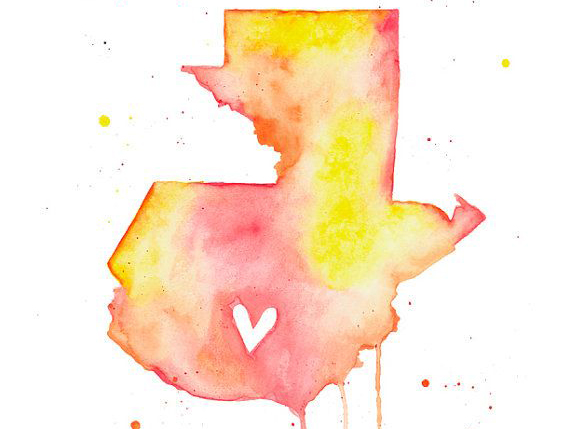
Forrás/Source: https://www.etsy.com
***
En esta entrevista hablaremos sobre Guatemala y Moscú con Lenke, una chica guatemalteca mitad húngara. Además, sabremos por qué le gusta tanto la Casa de los elefantes que se encuentra en el zoológico de Budapest.
Tú nombre es muy especial. No es un nombre común guatemalteco, ¿no es así?
Sí, mi nombre es muy especial porque es el de mi abuela paterna.
¿Tienes hermanos o hermanas?
Sí. Y todos mis hermanos y hermanas tienen nombres húngaros también, nombres en memoria de algún familiar de mi papá. Creo que era importante para él mantener sus raíces húngaras y lazos familiares.
¿Podrías contarme un poco sobre tu familia?
Mi papá y su familia se fueron a Guatemala al final de la segunda guerra mundial. Mi abuelo intentó trabajar como doctor allá, pero no obtuvo el permiso necesario para ejercer su profesión. Todos vivieron allí por un año, pero luego se mudaron a los Estados Unidos. Después de tres meses, mi padre decidió volver a Guatemala: se había enamorado de su naturaleza y su amigable y honesta gente. Mi padre se casó y tuvo 4 hijos, pero se divorció después de 4 años. Años después, en su trabajo, conoció a abuelo materno, quien lo invitó a su casa a tomar un café. Allí conoció a mi madre, quie le gustó mucho. En fin, se casaron y tuvieron 7 hijos, incluída yo.
Los húngaros no saben mucho sobre Guatemala, ¿cómo podríamos explicar la vida diaria por allá?
Bueno, los húngaros no son los únicos que no saben mucho sobre Guatemala, y no los culpo: es un país muy pequeño y pobre en Centroamerica sin influencia económica o política en el mundo. Lo que la gente no sabe es que Guatemala es el corazón del mundo maya, albergando la ciudad más grande de esa civilización: Tikal. El país está lleno de contrastes también: tú puedes oír a una persona hablar español y a otros hablando su propio dialecto en el mismo sitio (en el país existen 21 lenguas mayas diferentes, una no maya y otra afro-americana), puedes ver a los indígenas en su propio colorido y hermoso traje típico (los trajes varían dependiendo de la región), puedes oír el sonido del océano o las canciones de los grillos mientras te quedas dormido, puedes bailar en un club nocturno en le moderna ciudad de Guatemala o en la colonial Antigua Guatemala, puedes ser testigo de un ritual maya o una procesión católica, puedes viajar alrededor del país y darte cuenta que cada región tiene su propio olor especial: caña de azúcar y frutas en la costa, café tostado en Antigua, tierra mojada in las áreas montañosas, incienso en los pueblos pequeños, etc. Pero hay personas que saben sobre Guatemala, especialmente porque han oído lo peligroso que se está volviendo el país gracias al narcotráfico, las pandillas y el crimen organizado. Así que, cuando viajan a Guatemala, los turistas deben tomar ciertas medidas de seguridad y estar siempre en compañía de un ciudadano guatemalteco.
¿Por qué has venido a Europa?
Bueno, después de terminar la preparatoria me fui a estudiar a Moscú. Durante ese tiempo, traté de viajar dentro de Rusia y en Europa durante los veranos. Visité el país de mi padre en varias ocasiones y me enamoré de su cultura, pueblos, aldeas, comida y amable gente. Aunque, me sentía un poco avergonzada por no hablar húngaro, así que decidí que leer húngaro debe estar en mi lista de “cosas por hacer” Así que básicamente, es una meta por cumplir.
¿Cómo era tu vida en Moscú? ¿Qué tal el clima?
Era muy interesante. Moscú debe ser visto al menos una vez en tu vida. Aveces puedes como si hayas regresado a la época del zarismo, con edificios decorados ricamente. O puedes encontrarte a ti mismo preguntándote si la Unión Soviética está realmente disuelta o no. Es un país lleno de contrastes. Rusia siempre estará en mi corazón, tengo muy buenos recuerdos de los días que pasé allí. Viví en Moscú aproximadamente 5 años, suficiente para enamorarme de la nieve y el clima frío, entre otras cosas..
¿Te gusta Europa?
Sí. Lo que me gusta de Europa es que las personas son más honestas en cuanto a cómo se sienten, y no lo tratan de esconder detrás de una cortina: si algo no les gusta te lo dicen en el instante sin miedo a herir tus sentimientos. Amo la comida, los vinos, las ciudades pequeñas, poder caminar o sentame en la calle sin sentirme en peligro, que las ciudades grandes no me estresan, que hay una gran variedad de eventos culturales a buen precio e incluso gratis, el trasnporte público...
¿Qué estás haciendo ahora en Budapest?
Bueno, como dije, estoy tratando de aprender húngaro, un idioma bastante difícil por cierto. Estoy feliz de tener familiares que viven aquí, y estoy deseosa de conocer a los que aún no he conocido..
Estás muy orgullosa de tus familiares, ¿quién es él?
Ël es mi bisabuelo, Neuschloss Kornél, el arquitecto que diseñó la casa de los elefantes y la puerta principal del zoológico de Budapest. Me gusta buscar edificios diseñados por él, caminar cerca de ellos y sentirme orgullosa de poder decir: „este edificio fue diseñado por mi bisabuelo”
¿Cuál es tu plan para el futuro?
Esa es una pregunta interesante. Algunos Latino Americanos piensan que si cuentas tus planes, esos nunca se cumplirán. Soy latino-americana después de todo, pero te puedo decir que siempre he sido curiosa, por eso no pararé de moverme todavía.
Muchas gracias Lenke

